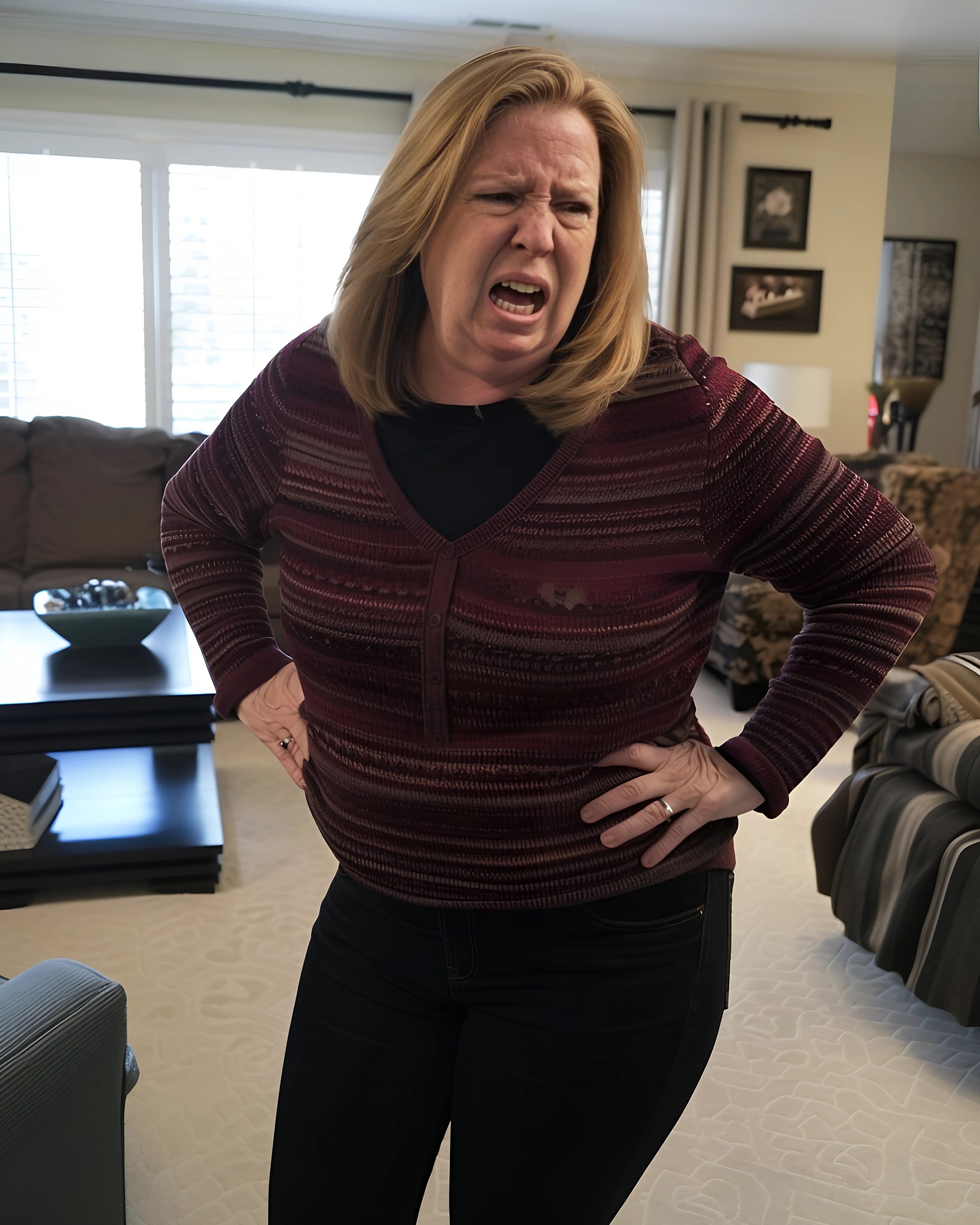After years of silence, my estranged mum showed up unannounced, cheerful but with sharp claws. She kicked me out of the house when I was 15, forcing my father to pick up the pieces. Now, after his death, she demands a share of his inheritance. In the struggle for his inheritance, I am beginning to strain.

The day my father died, a part of me went with him. I sat in his hospital room and held his hand as the machines went silent.
The nurses warned me it would be soon, but nothing could have prepared me for this moment. The cancer took him quickly: three months from diagnosis to the end. The man who had saved my life was gone.
The hospital room seemed too small, too sterile. I remembered how Dad had always hated hospitals, but in those last weeks he’d looked at everything with the same calm strength he’d shown all his life.
Even towards the end, he squeezed my hand and tried to joke about the horrible hospital food.
‘Catherine,’ he said the night before he died, his voice barely above a whisper, ’promise me you’ll keep living. Really live, not just survive.’

I didn’t cry immediately after he died. Instead, I started thinking about Mum more than anyone else. It’s funny how trauma works: one bad memory attracts another, like domino knuckles falling in your head.
I hadn’t seen her since that night when I was fifteen and she’d kicked me out of the house with just my rucksack and some half-assed speech about how she’d teach me responsibility.
‘You need to learn to be an adult,’ she said, crossing her arms, blocking the door to my room. ‘The world isn’t going to patronise you forever. It’s for your own good.’

In fact, the world didn’t patronise me at all. But Daddy was there for me, he showed up at the orphanage I went to a few days later. I found out later that he started frantically searching for me as soon as he heard what had happened.
Before that, my mum had kept us apart for several years, indoctrinating me with lies that he didn’t care about me and didn’t want to see me. She told me that he cancelled every attempt to visit me. All the birthday cards he sent were mysteriously ‘lost in the mail.’

That night at the orphanage changed everything. Dad looked at me, gave me a big hug and said: ‘I’m sorry, baby. I’m here now.’
And he was here until cancer decided otherwise. He helped me finish high school, cheered me on at graduation, and supported me through college. We made up for lost time with weekend fishing trips and silly traditions like the annual Christmas film marathon.
I handled funeral arrangements in a daze. My father’s siblings helped, especially Aunt Sarah, his younger sister.

The funeral director kept asking questions I couldn’t answer – what flowers, what music, what pictures to put up. Sarah stepped in when I froze in place and somehow found out exactly what my father would have wanted.
The will was simple: Dad would leave everything to me, and I would share it with his brothers and sisters. It was the right thing to do. After all, they were family. A real family. The kind that comes and stays and loves without keeping score.
I decided I had it all worked out and started to move forward. At 24, I had a stable job, my own home, a life I had built from the ground up. Then my mum appeared on my doorstep with a smile that never left her eyes.

‘My baby!’ – she exclaimed, as if we were in some family reunion film. ‘Look how successful you’ve become!’
I froze in the doorway. She looked older, but the calculating look in her eyes hadn’t changed. Not a few minutes later, she was already starting to accuse me.
‘Ten years without a single phone call,’ she said, shaking her head. ‘Do you know how painful that is for a mother? To be abandoned by your own child?’
My stomach rumbled.
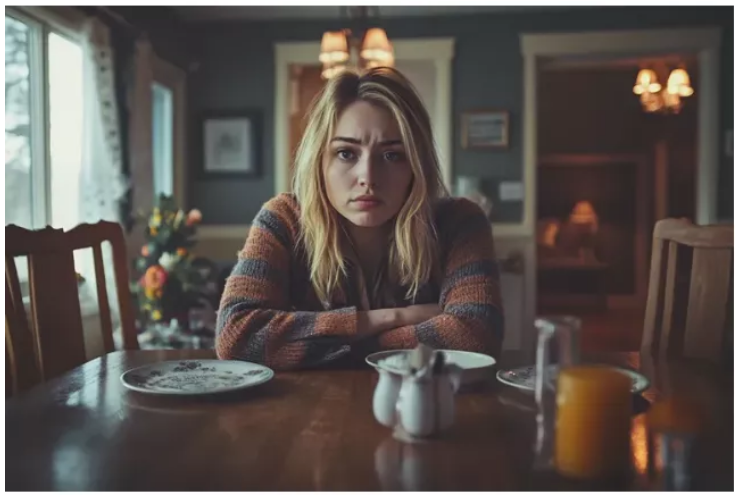
‘Would you like to come in for lunch?’ I asked, more out of ingrained politeness than anything else.
Dad had taught me to be kind, even when it was hard. ‘Kill them with kindness, kid,’ he’d say with a wink.
Over sandwiches, which I barely touched, she told me how she’d found me.
‘I visited Sarah after I found out your father had died,’ she said, picking at her food. ‘I wanted to return something I gave him when we first got married. Sarah mentioned that you bought a house in the neighbourhood.’
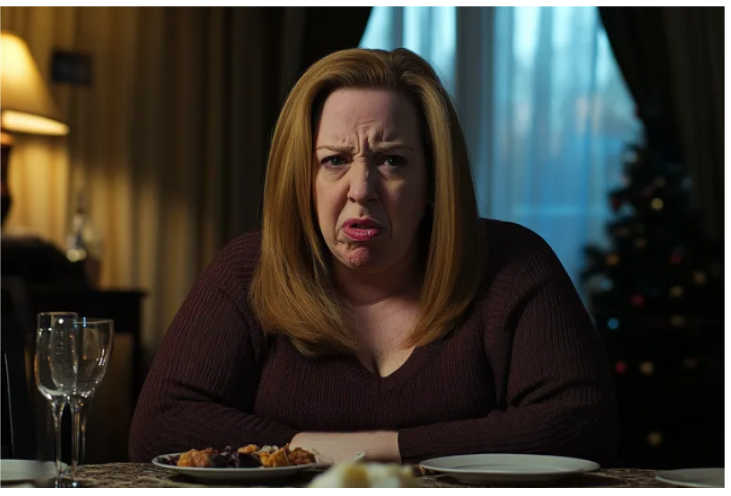
‘How nice of you to stop by,’ I said, keeping my tone neutral.
But I knew there was more to it. It had always been like that with her. Every kind word was just bait, hiding a hook underneath.
Sure enough, her face darkened.
‘There’s something I can’t figure out. Why wasn’t I included in the will? I’m his ex-wife! I deserve his money!’
And there it is.

‘We’re still busy cleaning Dad’s house. There’s some furniture and other leftover stuff you can take if you want,’ I offered, thinking that would satisfy her. That was a big mistake.
‘Leftovers?’ She practically spit the word out. ‘And this is what I’m worth? I gave him the best years of my life! I put up with his family, his stupid fishing trips, his constant disappointments!’
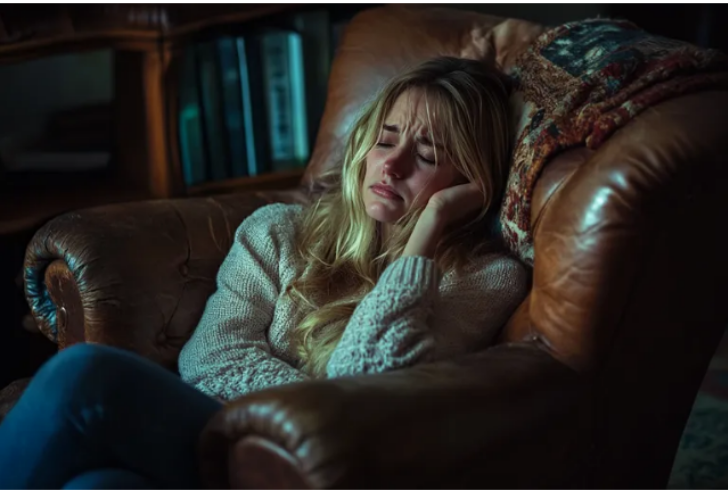
The conversation spiralled further. She began throwing around accusations of unpaid child support, her voice growing louder with each assertion. Her hands were shaking and she gesticulated wildly, nearly knocking over a glass of water.
‘How much did you get?’ – she demanded. ‘He’s owed me for years! You owe me at least several thousand. I raised you!’

Something inside me shivered. Maybe it was the grief, maybe the years of therapy had finally taken their toll, but I felt surprisingly calm as I replied.
‘Okay, I’ll give it to you. But on one condition!’ I met her gaze firmly. ‘Prove somehow that he didn’t pay you child support, that you raised me alone, and that you didn’t kick me out of the house when I was underage.’
Her face took on a few interesting shades. ‘Well, but… I raised you anyway! Yeah, maybe he contributed some money, but…’
‘Maybe?’ I interrupted her. ‘Maybe? I remember him sending you cheques every month, but you spent that money on yourself. It would have been nice if you’d bought me at least one toy! Instead, I watched you buy designer handbags and I wore shoes with holes in them.’
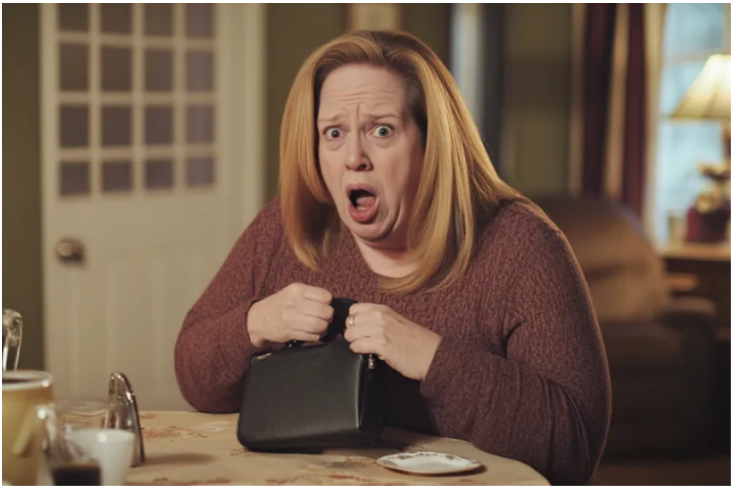
She began to sputter, her carefully constructed narrative crumbling. ‘You don’t understand! I did everything I could! I tried to teach you important life lessons! Everything I did was for you!’
‘By throwing me out on the street?’ I stood up, finished with my lunch and done with her games. ‘I think it’s time for you to leave.’
‘You can’t just kick your guests out!’ She clutched her purse to her chest, eyes widening with contrived indignation. ‘I’m your mother! You have to respect me!’
‘My house, my rules,’ I said, echoing her words from that night nine years ago. ‘Please leave.’
She tried everything: crying, begging, threatening. I remained firm and walked her to the door. The last thing I saw was her standing in my driveway, mascara dripping down her face as she screamed about ungrateful children.

That evening, as I sat in my dad’s old chair, one of the few pieces of furniture I’d kept in his house, I started getting messages.
‘How dare you treat me like this? The least you can do is give me a few thousand dollars. That’s what I deserve.’
I shook my head and put my phone aside, but then another text notification came in.
‘I see you read my message. Don’t ignore me, you ungrateful brat! I want what’s owed to me! Give me the money!’
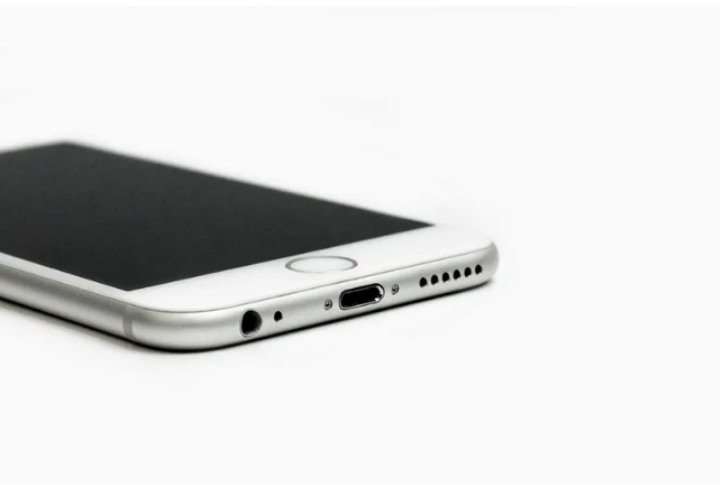
This went on and on, but I didn’t respond to a single message.
I considered sending her a penny, but even that was more than she ‘deserved’. Eventually I switched off the phone and curled up in my armchair, breathing in the familiar smells of leather and Dad’s cologne.
For the first time since his death, I let myself cry. Not just for him, but for the fifteen-year-old girl who needed a mother and got a manipulator instead. For the years of lies and persuasion. All of it.
But mostly I cried because I finally felt free.
Dad had given me my first taste of freedom when he found me at the orphanage, and now, standing up for Mum, I had completed what he had started.
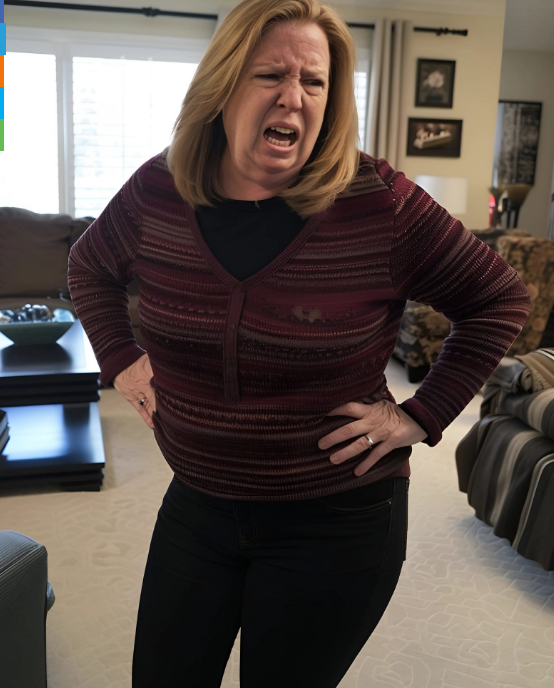
Some people say you can’t choose your family. But sometimes, if you’re lucky, your family chooses you. Dad chose me. And that was enough.
